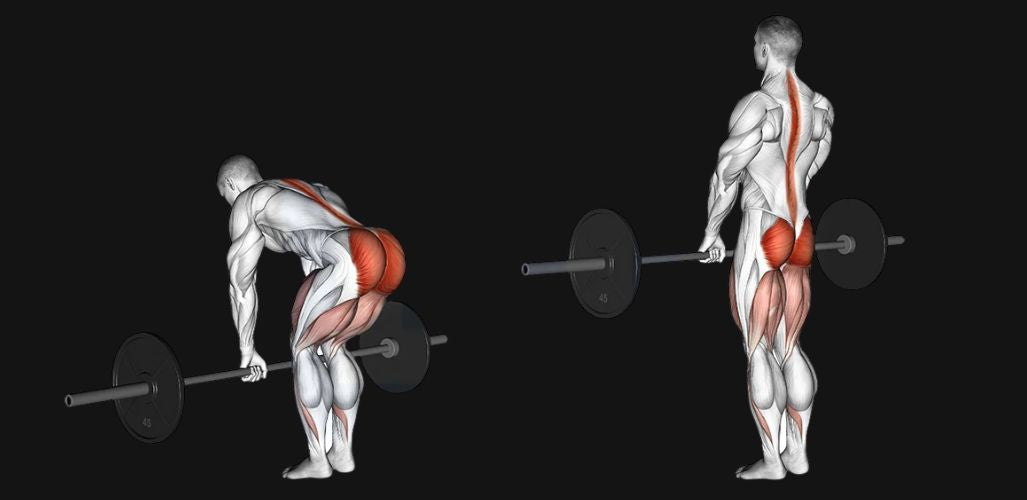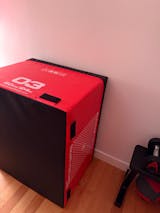
Barbell Deadlift: Technique, Muscles Worked & Variations
Ever wonder why the barbell deadlift is called the king of lifts? Because it hits almost every muscle — glutes, hamstrings, back, and core — all in one pull. Short answer: it builds full-body power and real-world strength. Keep reading to learn perfect form, top variations, and the best-selling fixed barbells to train with.
What Is the Barbell Deadlift?
Definition & Movement Pattern
The barbell deadlift is a fundamental compound exercise where you lift a loaded barbell from the ground to a standing position. It’s called a “dead” lift because the weight starts still — no bounce, no help, just raw strength.
At its core, it’s a hip hinge movement. You bend, grab the bar, brace your core, and push the floor away until you’re standing tall. Done right, it builds strength like nothing else.
History & Why It’s a Foundational Lift
The deadlift has been a test of power for centuries — from ancient stone lifting to modern strongman competitions. It’s a timeless movement that trains not just muscles, but discipline. Every pull teaches control, focus, and grit — the kind of effort that pays off both in and out of the gym.
What Muscles Do Deadlifts Work?
Primary Movers — Glutes, Hamstrings, Erectors
If you’ve ever felt sore after deadlifts, you already know where the magic happens. The glutes, hamstrings, and erector spinae are the main engines of this lift. They drive the hip extension and stabilize your entire backside.
Think of them as the power trio behind your explosive strength — essential for running, jumping, and yes, lifting heavy.
Secondary & Stabilising Muscles — Lats, Traps, Core, Forearms
Your lats help keep the bar close. Your traps hold posture. The core braces every inch of your spine, while your forearms grip the weight like steel hooks. That’s why the deadlift is often called a total-body exercise — because it truly is.
Why Deadlifts Improve Posture, Strength, and Coordination
Stronger posterior muscles mean better alignment, improved balance, and a more confident stance. It’s not just about looking strong — it’s about moving better. You’ll notice the difference when you sit, stand, and even carry groceries.
How to Do a Barbell Deadlift with Proper Form
Setup — Foot Placement, Grip, Bar Position
Start with the bar over your mid-foot. Feet hip-width apart, toes slightly out. Grip the bar just outside your knees. Hinge your hips back, bend your knees a touch, and flatten your spine. The bar should almost touch your shins.
The Pull — Hip Hinge, Bracing, and Lifting Mechanics
Take a deep breath, brace your core, and drive your feet into the floor. The bar travels in a straight line, close to your body. Keep your chest up, shoulders back, and squeeze your glutes at the top.
Lowering Safely — Controlled Descent and Reset
Don’t just drop the weight. Guide it down by hinging your hips first, then bending your knees. Reset after each rep to maintain perfect positioning.
Common Mistakes to Avoid
Avoid rounding your back, jerking the bar, or letting your hips shoot up early. Smooth, tight, and controlled — that’s how you deadlift for strength and longevity.
Common Barbell Deadlift Variations to Know
Conventional Deadlift
Your classic setup. Narrow stance, hands just outside the knees. Hits everything evenly — perfect for strength and power building.
Sumo Barbell Deadlift
Wider stance, upright torso. Easier on the lower back, harder on the hips and inner thighs. Great for mobility and leg power.
Romanian Barbell Deadlift (RDL)
Slight bend in the knees, hips move back. Focuses on stretching and strengthening your hamstrings. If you want posterior chain development, this is gold.
Barbell Stiff-Leg Deadlift
Minimal knee bend, maximum hamstring tension. Perfect for isolation and control work.
Trap Bar vs Barbell Deadlift (Hex Bar Comparison)
A trap bar lets you step inside the frame, reducing lower back strain. It’s friendlier on the joints and great for beginners. But if you want traditional strength transfer — the straight bar wins.
One-Leg Deadlift Barbell
Excellent for balance and single-leg strength. You’ll quickly find out if one side is doing more work than the other.
Barbell Deadlift Alternatives for Home or Limited Equipment
No full barbell setup? Try Troy fixed barbells, York cast iron plates, or VTX rubber plates. They’re durable, space-efficient, and part of our best-selling range from 20 lb to 115 lb.
Programming & Training Tips
How Many Reps of Deadlifts Should I Do?
For strength, aim for 3–5 reps. For muscle growth, go 6–10. For endurance or toning, 10–12. The goal is quality over quantity.
Reps and Sets for Strength vs Hypertrophy
Strength-focused programs work best with heavier weights and longer rest periods. Hypertrophy thrives on moderate weight with controlled tempo and shorter rests.
How Often Should You Do Barbell Deadlifts?
Once or twice a week is ideal. They’re taxing, so balance them with rest or accessory work like rows and RDLs.
Progressive Overload — How to Safely Increase Weight
Add small plate increments — like Olympic grip plates or urethane encased plates — every few weeks. Track your lifts and prioritize perfect form before heavier loads.
Equipment & Setup Guide
Which Type of Barbell Should You Use?
Straight Barbell
The standard choice for conventional, sumo, and Romanian lifts.
Trap (Hex) Bar
Neutral grip, reduced back stress — perfect for beginners or rehab.
Smith Machine
Controlled movement but limited range. Use for learning form, not max strength.
Choosing Your Plates & Weights
Olympic Grip Plate
A gym essential — secure grip and balanced feel.
Rubber Bumper Plates
Shock-absorbing, great for home setups or CrossFit-style training.
Urethane Olympic Plates
Sleek, durable, and built to last.
Cast Iron Olympic Plates
Old-school, affordable, and timeless.
Recommended Brands for Barbells and Plates
Stick with trusted names: Troy, York, VTX, TAG Fitness, TKO, Intek Strength, and BodyKore. They offer quality, performance, and longevity. Plus, they’re all part of our best-selling lineup — with weights from 2.5 lb to 100 lb per plate.
Benefits of Barbell Deadlifts
Build Full-Body Strength and Muscle
Few exercises recruit as many muscles at once. Deadlifts build your back, legs, and grip — all in one powerful motion.
Enhance Athletic Performance and Mobility
A strong posterior chain means more speed, power, and explosiveness. Whether you’re sprinting, jumping, or lifting, it all comes from the hips.
Strengthen Your Core and Improve Posture
Deadlifts make your core unshakable. That means less slouching, fewer back issues, and better stability in everything you do.
Real-Life Carryover — Everyday Functional Strength
From moving furniture to hauling groceries, the strength you gain in the gym pays off in daily life. That’s the beauty of functional training.
Safety Tips & Common Mistakes
Warm-Up and Mobility Drills for Hips and Hamstrings
Dynamic stretches, light RDLs, and glute bridges are perfect primers before heavy pulls.
Grip Variations and Back Positioning
Try overhand, mixed, or hook grips — whatever feels natural. Keep your back flat and your lats tight.
Avoiding Ego Lifting and Poor Recovery
If your form breaks, it’s too heavy. Rest properly, eat well, and treat recovery like part of your training plan.
Price, Value & Promotions
Cost of Fixed Barbells vs Adjustable Barbell Setups
Fixed barbells from Troy or York are convenient and space-saving, while adjustable setups with Olympic plates allow scalable progress.
Bulk Discounts & Custom Pricing
We offer custom deals for bulk orders, gym setups, and commercial packages — especially on barbells and weight sets.
Weekly 5% Promotions
Every week, enjoy 5% off all best-selling barbells and plates, including rubber bumper plates, urethane Olympic plates, and cast iron Olympic grip plates.
Final Takeaway — Why the Barbell Deadlift Reigns Supreme
The barbell deadlift is more than just a lift — it’s a statement. It builds strength, resilience, and character. Every rep teaches you to stay grounded, focused, and strong — inside and out.
Whether you lift with a Troy fixed barbell or load up VTX bumper plates, one thing’s certain: the deadlift belongs in your routine.
And the best part? Our best-selling barbells and Olympic plates — from Troy, York, and VTX — are always available, with bulk discounts and weekly promos. Time to grip, lift, and grow stronger than ever.



Leave a comment